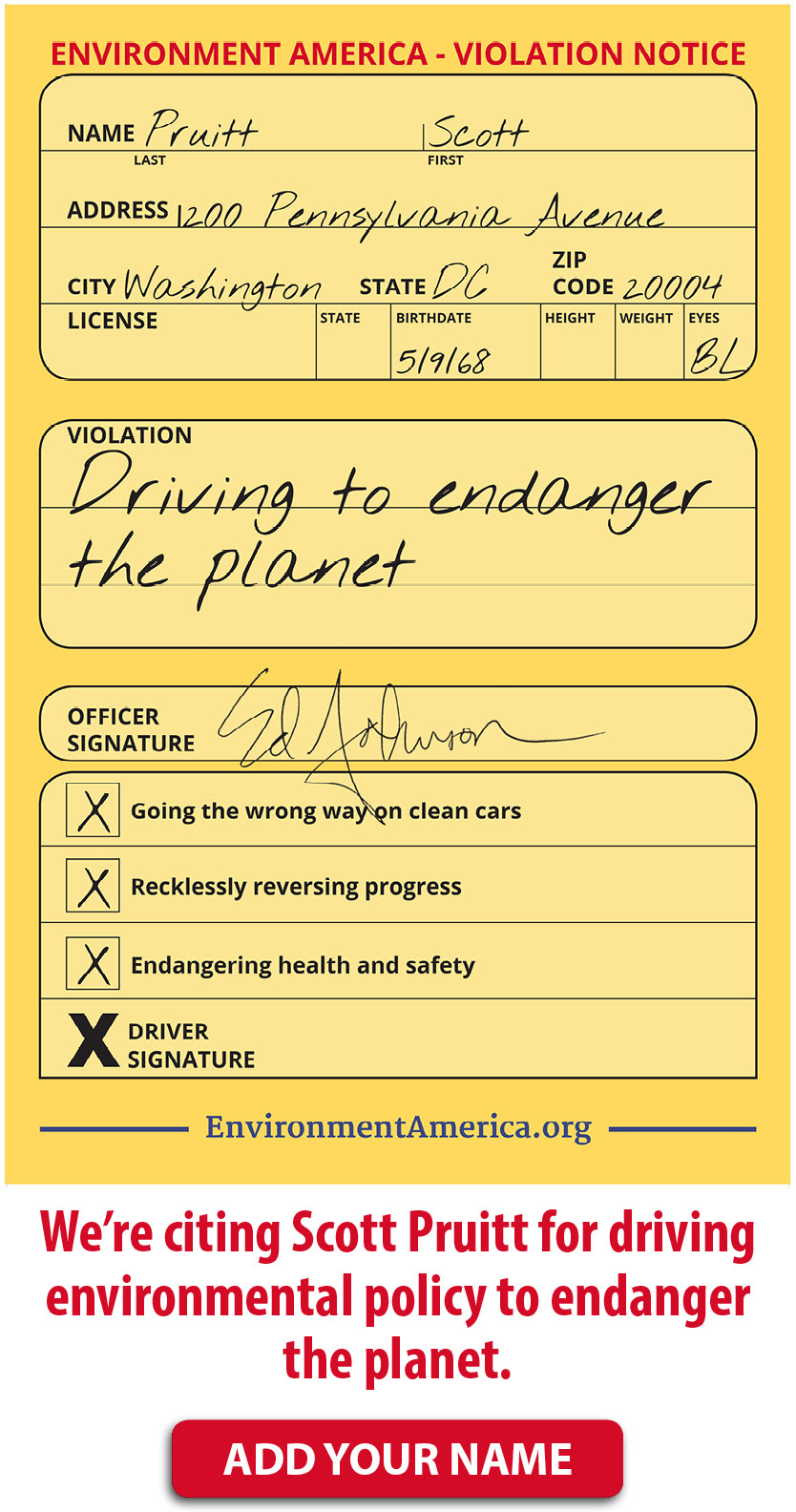Wrong Direction on Clean Cars — EPA Receives Citizen Citation
Media Contacts
Today, rightfully-concerned Americans descended upon the Environmental Protection Agency to give EPA Administrator Scott Pruitt a ticket — for heading in the wrong direction on federal clean car standards.

The demonstrators protested Administrator Pruitt’s announcement to rollback the clean car standards, disappointed that the government is going the “Wrong Way on Clean Cars.”
Andrea McGimsey, Global Warming Program Director, issued the following statement in response:
“The stated mission of the EPA is to ensure that all Americans are protected from significant risks to human health and the environment where they live, learn and work.” By rolling back the clean car standards, the nation’s strongest policy against global warming, the EPA is directly violating the agency’s responsibility to all Americans.
“Americans want less pollution, not more. If fully phased in, the clean car standards would prevent 6 billion metric tons of carbon pollution and save 12 billion barrels of oil over the lifetime of model year 2012-2025 vehicles.
“In January 2017, the EPA concluded that America’s clean car standards were working and achievable, and should not be weakened. But now, though the facts haven’t changed, the current administration is reversing that decision, ignoring thousands of pages of technical analysis that support keeping the standards in place.
“No one wants more pollution and dirtier air, but that’s exactly what we’ll get if the federal government succeeds in rolling back our clean car standards. Nearly 7 in 10 Americans want current fuel efficiency standards to remain in place, and we’ve seen tens of thousands of citizens and hundreds of health experts voice their support for cleaner cars.
“Earlier this week, the National Highway Traffic Safety Administration proposed lowering penalties for companies that fail to meet current standards. Now, not only is the administration trying to make it cheaper for polluters to violate the standards, but it is also weakening the standards themselves.
“It’s past time to clean up our transportation sector, the nation’s largest source of carbon pollution. We need to clean up our cars, not make a U-turn on the progress we can achieve.”
